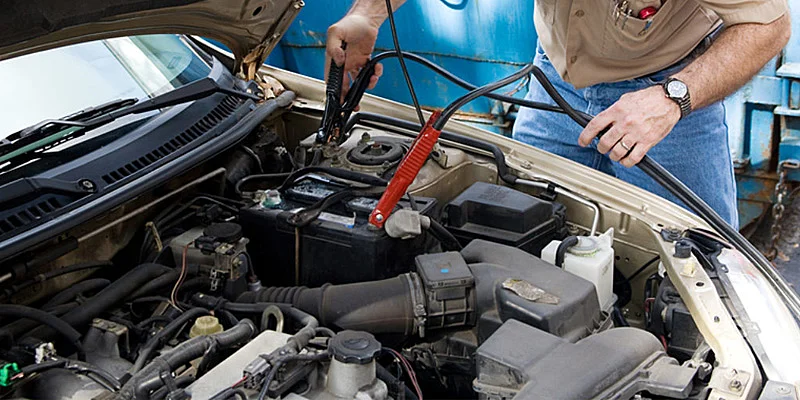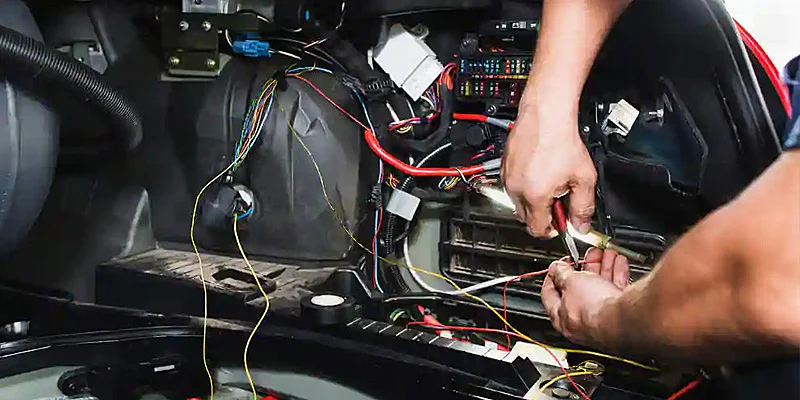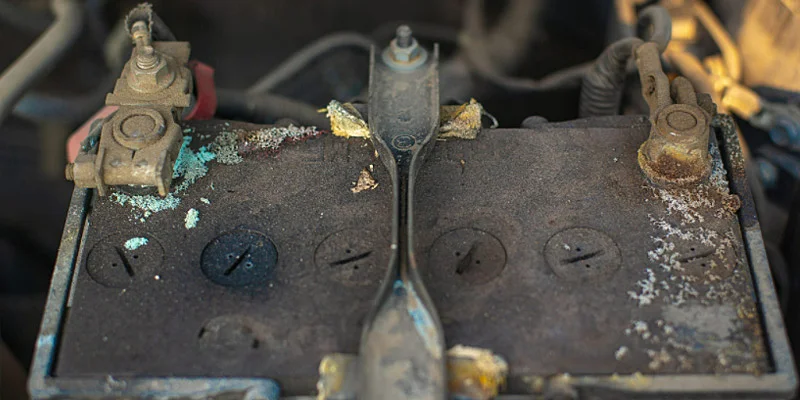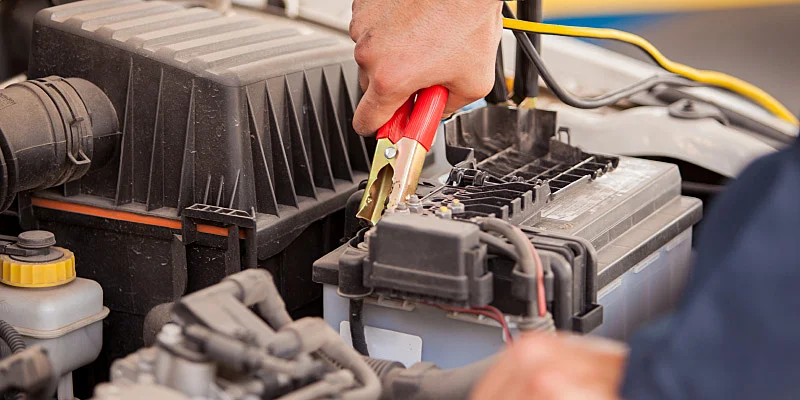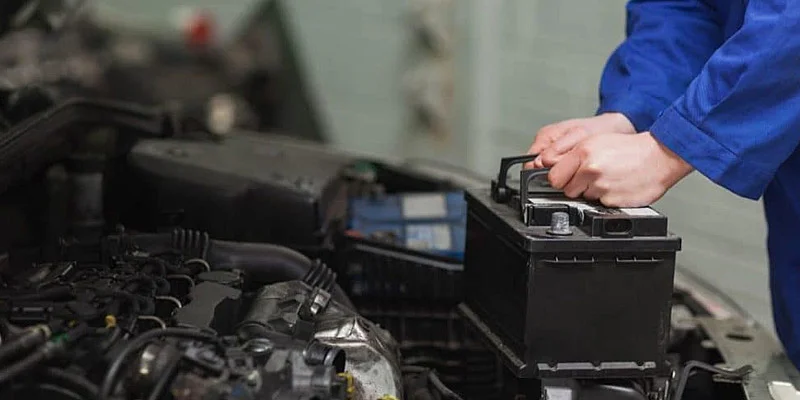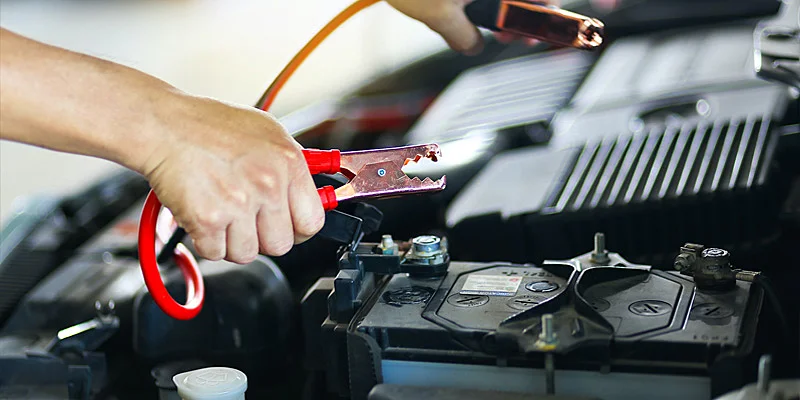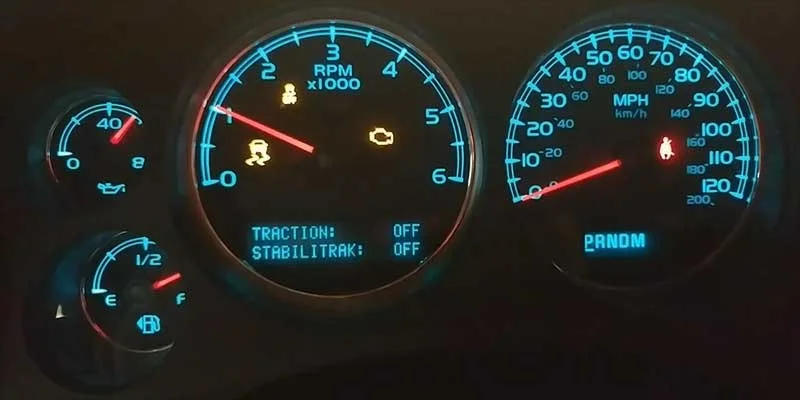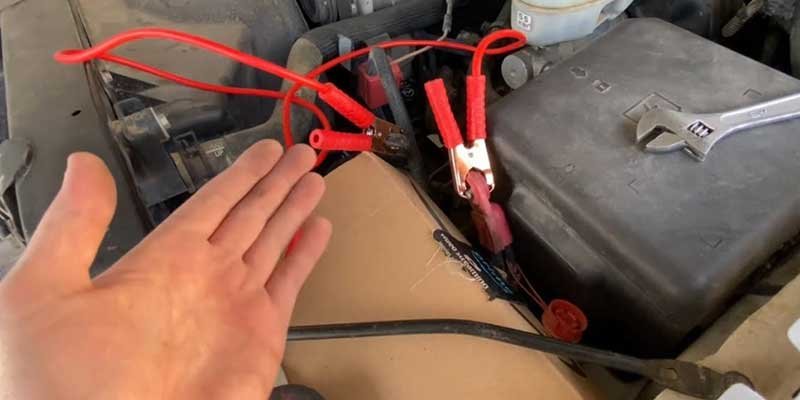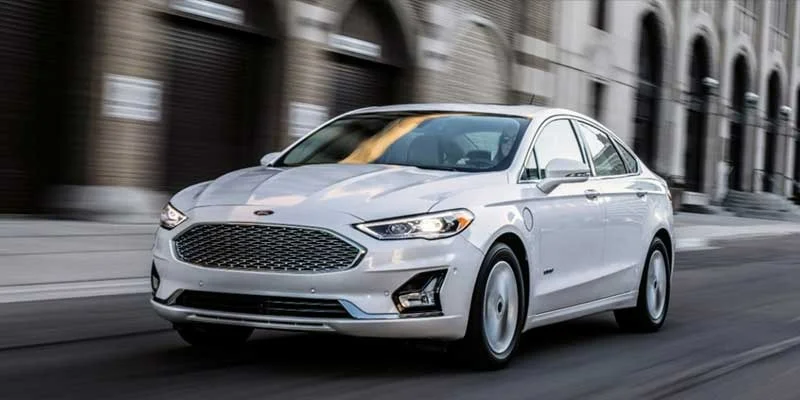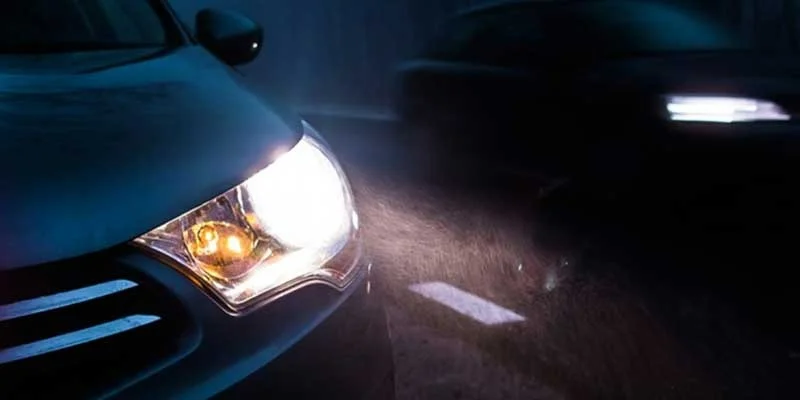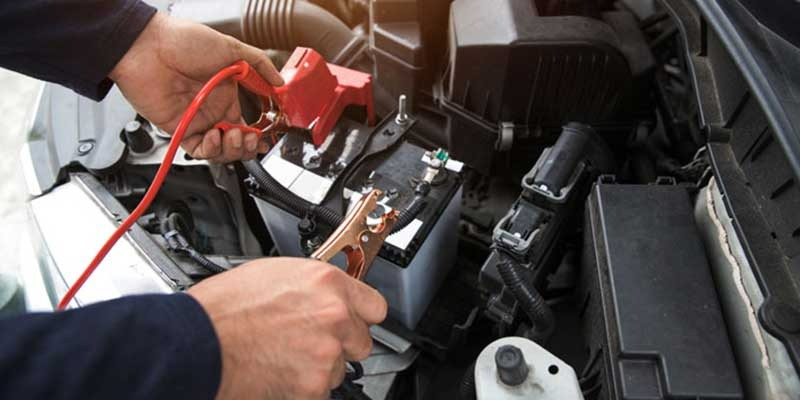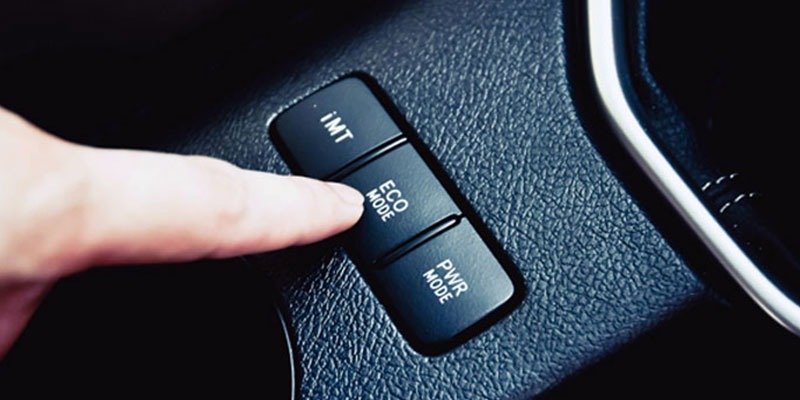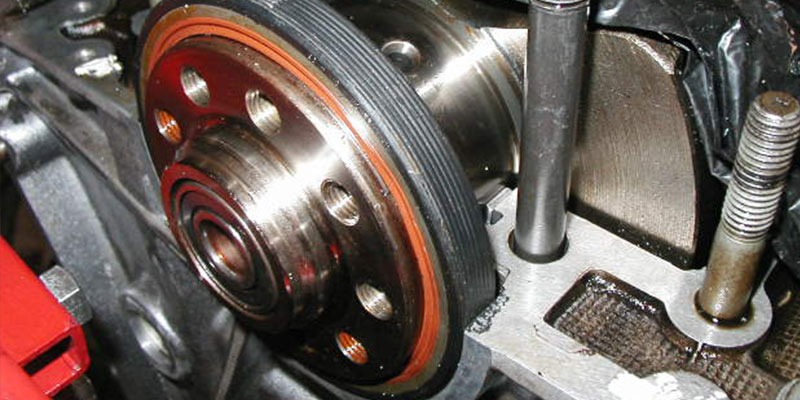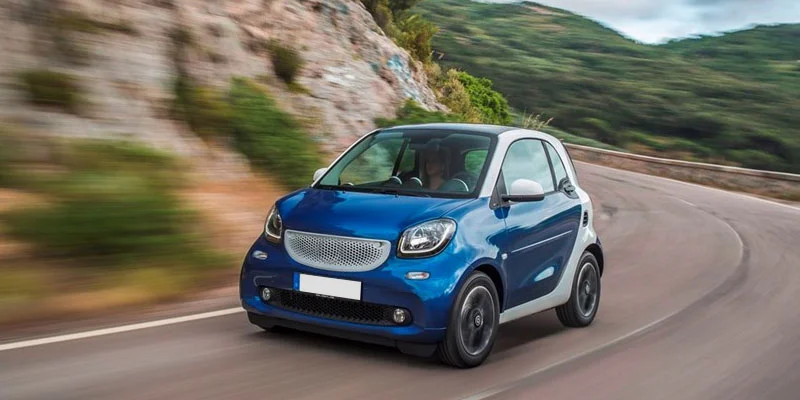Car Battery hold a crucial component of a car. It is responsible for supplying electrical power to all the systems in a vehicle when the engine is off. A battery that won’t hold a charge means your car can’t start, and you’ll need to get it serviced. How do you know that if your vehicle needs a new battery?
There are many reasons why a battery may not hold a sufficient charge, but here are the most common ones:
1. Corrosion
It is one of the most common reasons a battery won’t hold a charge. The terminals and cables can become corroded over time due to a lack of regular maintenance, which will prevent the battery from charging correctly.
2. Faulty Wiring
If the battery cables in your car aren’t working correctly, it can restrict the charge, and gradually the charged battery will be drained off. It is a common problem in older cars.
3. Dead Cells
Over time, the cells in a battery can die, which will prevent the battery from holding a charge. If you suspect your battery has dead cells, you may need to replace it.
4. Battery Age
All batteries eventually die, and if your battery is old, it might not be able to hold a charge anymore. You may need to replace your battery if you suspect it’s dead.
5. Temperature Extremes:
If your battery is getting too hot or too cold, the chemical reactions inside the battery might slow down, which will cause it not to hold a charge correctly.
6. Bad Alternators
Your car’s bad alternators are responsible for recharging your battery, so your battery won’t hold a charge if it isn’t charging correctly. Alternator act like a small generator that turns the mechanical energy of the spinning engine into electrical energy.
7. Faulty Diode
The diode prevents the battery from discharging at night. If this diode is bad or faulty, your battery may not recharge fully during the day. It will cause the battery not to hold a charge.
8. Cells Aging
All batteries will eventually die, no matter what. If your battery is more than 3 years old, it might not hold a charge as well as it used to.
9. Low Water
If your car doesn’t start, it could be because the battery is low on power. You can check this by adding water to see any leaks or cracks that may have developed over time which would allow urine in when you’re driving around town all day long!
In addition, try topping off any remaining liquids before taking them out for a spin. Modern batteries don’t typically come equipped with features like fill holes, so make sure they work properly and have enough fluid left over.
If you’re having problems with your battery, take your car to a mechanic and have them check it out. There are many reasons why a battery may not be holding a charge, and the mechanic will be able to diagnose the problem and fix it.
How to diagnose the problem?
As there are multiple causes of failed charges, locating the right reason is important to take a corrective measure. Here are the steps to undertake a test to reveal the correct cause of failed charge:
- Please turn on the headlights and check their brightness. If the brightness is normal, the problem is likely with the poor wiring or bad starter. If the brightness is low, you may need the battery replaced.
- Next is to test the voltage of the car’s battery. Take a volt meter. Connect its red lead with a positive terminal and black lead with a negative terminal. If you are getting more than 12.6 volts of reading on your voltameter, it suggests that your body is fully charged. If your volts reading is less than this, car batteries need a charge.
- Check out the physical condition of your car battery. If you found it corroded or the battery has been used for more than four years, it is likely to be a battery drain case or dead battery.
- Look out the alternator belt for any frying or cracking. If the battery loses its charge quickly, the suggestive issue can be with the faulty alternator.
- If you drive your car normally, then the alternator probably charges the battery enough that you may not notice this drain. If your car sits for a few days, however, it may end up dead when you start it from the drain. A parasitic drain could be going on for months before you are aware of it, and tracking one down can be a significant headache. It could be a cigarette lighter, alarm system, or any other electrical device.
How do you fix a battery that won’t hold the charge?
The most common reason a battery won’t hold a charge is a corrosion. The terminals and cables can become corroded over time, which will prevent the battery from charging correctly.
- If your car battery doesn’t hold a charge, you may need to clean the terminals and cables with a wire brush. You can also use a baking soda and water mixture to help clean the corrosion. Be sure to rinse off the terminals and cables with water when you’re done.
- If the problem persists, you may need to replace the battery. All batteries eventually die, so if your battery is more than 3 years old, it might not be holding a charge as well as it used to.
- In case if the car battery won’t have a charge due to a bad serpentine belt or bad alternator, you must replace it. Use a battery tester or voltmeter to check if the alternator is charging the battery or not.
- The dirty connector is one of the possible reasons why a car battery won’t hold a charge. Clean them properly so that they can make contact with each other.
- Old and dead car batteries may require replacement. However, if you cannot afford the relief, you can always recharge the cells. Initial electric spark helps in reviving the battery, and putting them on a slow charge helps to charge a car battery which is drained multiple times.
Frequently Asked Questions
Can a car battery test good and still not hold a charge?
Though a car battery can test good and still not hold a charge, the other possibility is its failure to activate due to corrosion or bad installation. It doesn’t work because of
the poor conductivity at the terminals and the cells. Hence, you may need to clean them with baking soda or some water-based solution that can help remove the corrosion.
Can a battery charger fix a car battery that won’t hold a charge?
It is possible that a battery charger can fix a car battery that won’t hold a charge, but it depends on what is causing the battery to not charge in the first place. If the problem is caused by corrosion or a bad alternator, you might fix the problem by cleaning the terminals with baking soda and some water.
Can removing extra fluid on a battery help it maintain its charge?
As usual, removing extra fluid on a car battery doesn’t help it maintain its charge. If removing excess fluid on a car battery helps make it hold a charge, you must ask when is the right time to remove extra fluid on a battery. So it’s time for you to visit an auto shop and ask them in detail about how much they charge?
How do you know if your battery or alternator is bad?
When you find that your car won’t start after the engine is off, then it’s time to check if there’s something wrong with your battery or alternator. Also, if your dashboard lights are dimming, you need to get them checked too.
What can cause a lead-acid battery to lose its charge?
Many things can cause a lead-acid battery to lose its charge. The most common reasons are corrosion, a bad alternator, and a bad serpentine belt. If you’re experiencing problems with your car battery not holding a charge, it’s essential to get the problem fixed as soon as possible.

My Name is Christopher Angels, and I am a postgraduate in mechanical engineering. Cars have always excited me as a child, and soon I decided to dive into the world of cars by pursuing mechanical engineering. I also worked as a Mechanic for over 3 years to understand Cars’ anatomy and how each part contributes to its working.
My Name is Christopher Angels, and I am a postgraduate in mechanical engineering. Cars have always excited me as a child, and soon I decided to dive into the world of cars by pursuing mechanical engineering. I also worked as a Mechanic for over 3 years to understand Cars' anatomy and how each part contributes to its working.

